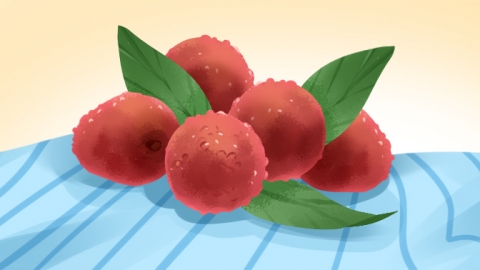Can I eat lychee if my face is allergic?
Generally speaking, whether one can eat lychee during facial allergies depends on the cause of the allergy and the individual's constitution. If the person is not allergic to lychee and symptoms are mild, moderate consumption may be acceptable. However, if the person is allergic to lychee or experiencing severe allergic symptoms, it is not recommended. If any unusual reactions occur, prompt medical attention is advised. Detailed explanations are as follows:

If facial allergies are caused by external factors such as cosmetics or pollen, and the individual is not allergic to lychee, with only mild allergic symptoms, moderate lychee consumption can provide nutrients such as vitamins and glucose, helping to enhance the body's immunity and aid in allergy recovery. When consumption is controlled, it generally does not worsen facial allergy symptoms.
If individuals with facial allergies also have an allergic reaction to lychees, consuming lychee may trigger allergic mechanisms, leading to worsening symptoms such as facial swelling, itching, and rashes, or even more severe reactions such as respiratory discomfort. Additionally, for those experiencing severe facial allergic symptoms during an acute phase, the body is in a hypersensitive state. Even if someone is not usually allergic, consuming lychee at this time may increase the risk of allergic reactions, which is not conducive to alleviating allergy symptoms.
Caution should be exercised when consuming lychee during facial allergies. If unsure about a possible allergy, start with a small amount and closely monitor any changes in facial symptoms after consumption. If symptoms such as increased redness or itching occur, consumption should be stopped immediately.








